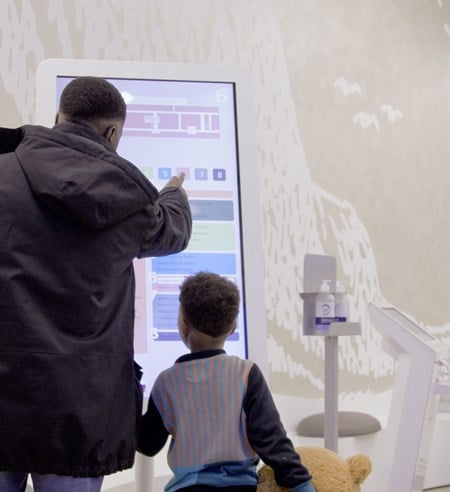Head of Health, Tietoevry Care
The challenge
The long-prepared health and social services reform in Finland will take place at the beginning of 2023 when the responsibility for organizing health and social services will be transferred from municipalities to wellbeing services counties. New organizational structures and service models require the ability to change from both the information systems and the people behind them.
The solution
A strong network enables faster and more predictable system development. As cooperation is extended from within hospital districts to wellbeing services counties using the same system, the counties will become more cost-effective and are able to have a stronger impact on the content of the solutions and services to be developed.
About the customer
The Hospital District of South Ostrobothnia (EPSHP) has been developing patient and customer information systems together with Tietoevry for more than 20 years. In healthcare, the Lifecare patient information system was introduced throughout EPSHP in November 2019 and Lifecare Social Welfare in 2020–2021.
Lifecare's predecessor, Effica, has been in use in the region since 2002. The hospital district has moved from several municipal health and social care systems to provincial Lifecare systems and now towards the wellbeing services county of South Ostrobothnia, which includes 18 municipalities.
Controlled system renewal
In a well-functioning network, one’s voice is heard, you can benefit from the experiences of others and make more sustainable development decisions.
Cost-effectiveness
Co-development harmonizes deployments and operating environments, enabling synergies and creating a foundation for overall cost savings.

User orientation
Development networks extended beyond one's own organization provide an even better opportunity to influence the content of the solutions and services being developed.
Development requires long-term work
Markku Stenman has worked in the hospital district of South Ostrobothnia for 41 years and has collaborated with Tietoevry (formerly Tieto) for more than 20 years. The current information system manager, who has started his career as a nurse, will retire in a situation where wellbeing services counties are opening a new chapter in the history of Finnish social and health care.
Describing himself as a dedicated collaborator, Stenman has been a nurse for the first 12 years of his career and a ward nurse for the next nine years. He knows that one can’t control the challenges encountered in working life, but solutions can be found by prioritizing and coordinating.
“In 2002, a decision was made in the hospital district of South Ostrobothnia to switch to Effica's electronic patient information system. It was a turning point. I became the full-time coordinator of the deployment. At that point, I thought this was a project for a few years, but I stayed in this path,” Stenman says.
In 2006, he took on the biggest challenge of his career, managing the nationwide Proxit project. In the project, 10 hospital districts developed Effica and prepared for the deployment. The cooperation from those days serves as a foundation for the agreement made by seven hospital districts in the spring of 2021 on the development of Lifecare.

It’s a significant development investment towards a wellbeing services county, that we are in the one and same Lifecare system.
Markku Stenman
CIO, Information Management, hospital district of Southern Ostrobothnia
Collaboration is the key
The transition from the paper world to Effica in 2002 was a huge step forward and a leap into the unknown.
“We realized already then that not all hospital districts should bounce TietoEVRY in their own way, but we should do these things together. This collaboration has been a key for me along the way”, says Stenman.
The hospital districts were organized and received development funding from the Ministry of Social Affairs and Health. The precondition for the funding was the development of Effica into compatible with national Kanta services, . A joint Proxit project between Tieto and 10 hospital districts was born, led by Stenman for seven years.
“Everything was new when building Kanta services. There was no legislation, no implementation models, and everything had to be created together. Along the way, it was confirmed that the archive is maintained by Kela, it was given a name and a huge number of technical solutions. More than 95 percent of the first 100 organizations joining Kanta services were Effica users. It described that success,” Stenman recalls.
Tietoevry's systems have always been developed in cooperation with the customer, and the latest manifestation of the cooperation is the development partnership agreement started in 2021.
Cost control is now on a proactive path. We know what will be paid over the next five years.
Markku Stenman
CIO, Information Management, hospital district of Southern Ostrobothnia
Support from the work community is important
Development is a long-term job, and Stenman emphasizes the importance of networks and collaboration skills. When everyone knows their substance, it’s possible to reach the core of the development need fast, and the technical platform can be reformed in a controlled way.
An important attribute of a supplier is the ability to listen to customer needs. There are often hundreds of development requests, and it’s the supplier's responsibility to manage them and tell how to proceed with them in the most efficient way.
The most important support and security for Stenman during his 41-year career has been his own family. A good number of challenges have also helped to maintain a work-life balance.
“You shouldn’t get exhausted under the workload, even though sometimes it feels like there is no solution. The ability to collaborate is a driving force in these situations too. I have a deep respect for everyone in my work community. We have a wide range of professionals, and the know-how can sometimes be fragmented. But there is always help available if you are in trouble and don't know how to proceed,” Stenman shares.
Read more about the deployment of Lifecare healthcare information system
Check our customer case: Lifecare takes social welfare towards knowledge management
The ability to collaborate is the driving force of development work.
Markku Stenman
CIO, Information Management, hospital district of South Ostrobothnia





